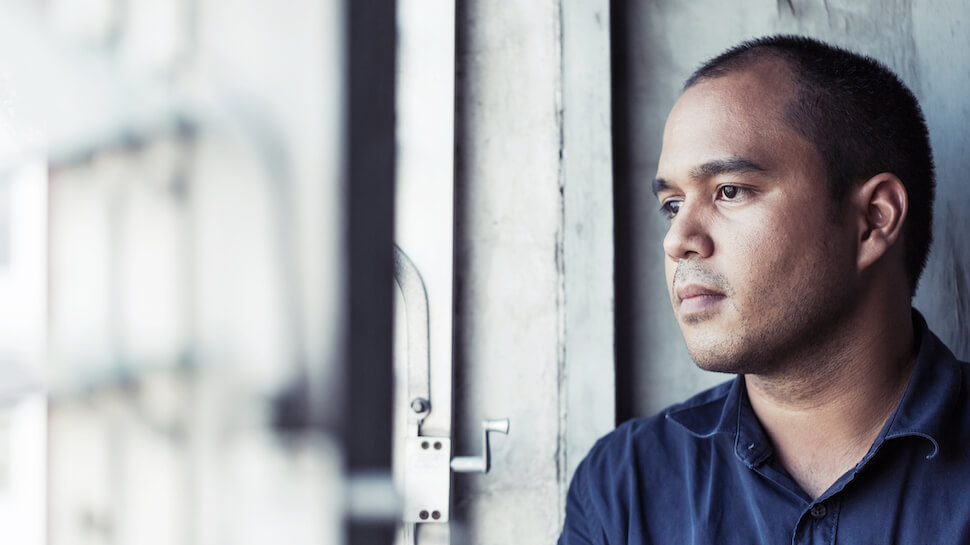
Residential Treatment for PTSD and Anxiety
Anxiety disorders and PTSD (post-traumatic stress disorder) are sometimes diagnosed together. Co-occurring PTSD and anxiety can be a devastating combination, leaving those who have both struggling with powerful and debilitating emotions on a daily basis. While addressing both simultaneously is challenging, BrightQuest’s comprehensive residential treatment program for PTSD and anxiety offers a range of evidence-based treatment services that can produce profound and lasting results.
Some people develop anxiety disorders and post-traumatic stress disorder (PTSD) simultaneously, creating a situation that is doubly as hard to manage. Severe anxiety for these men and women recurs on a daily basis. This compromises their physical and mental health and creates significant obstacles that make it hard to function.
Many people who experience the symptoms of PTSD and an anxiety disorder together retreat into despair. But their situation is far from hopeless. Men and women who come to BrightQuest for help have excellent prospects for recovery.
Our intensive and comprehensive treatment plans for co-occurring PTSD and anxiety incorporate a broad range of evidence-based therapies and wellness-enhancing strategies. This combination can produce remarkable results for those who are willing to invest the time and effort necessary to heal.
BrightQuest Dual Diagnosis Treatment Plans
Treatment services at BrightQuest are always personalized, yet include evidence-based therapies and complementary healing methodologies that have helped countless numbers of others transcend their struggles with anxiety, PTSD, and other conditions that might have developed as well.
When your loved one has a dual diagnosis for anxiety and PTSD, their recovery plans must incorporate multiple layers of treatment services and be carefully structured to produce immediate yet sustainable results.
We empower our clients at the same time as we challenge them. As your loved one meets their recovery goals, they will build the self-confidence and self-esteem they need to survive and develop greater independence.
Treatment for Co-Occurring PTSD and Anxiety at BrightQuest
Intense anxiety can devolve into a true anxiety disorder. These conditions are exhausting and life-altering, and impossible to overcome through willpower alone. Post-traumatic stress disorder can be even more debilitating since the anxiety symptoms it produces are less unpredictable yet just as intense.
PTSD Signs and Symptoms
At one time, PTSD was classified as an anxiety disorder. That has now changed, with PTSD being moved to the trauma disorder category.
PTSD develops as a chronic reaction too extreme stress. Its symptoms often manifest in environments that somehow remind the sufferer of their past traumas. Some possible causes of PTSD include exposure to domestic abuse or child abuse, being the victim of a violent attack, witnessing or being trapped in a war, losing someone to an accident or other sudden fatality, or surviving a cancer scare or a natural disaster.
Men and women with PTSD are so traumatized that they cannot get over their terrible experiences. One way or another, they return to the past, again and again, reliving their worst experiences and feeling fresh anxiety as a result. They are troubled by emotional scars that seem reluctant to heal.
The distinctive symptoms of PTSD include:
- Intrusive and unwanted memories of the traumatic experiences
- Flashbacks to traumatic events that seem more real than normal memories
- Having frequent nightmares about the trauma or its aftermath
- Hyper-vigilance (sensing danger everywhere, and always remaining on guard)
- Chronic insomnia
- An inability to focus or concentrate
- Moodiness, irritability
- Feelings of hopelessness or emotional numbness
PTSD symptoms mimic panic attacks in their severity and unpredictability. When complicated by chronic anxiety, they can be even more overwhelming and intimidating.
Anxiety Disorder Types and Symptoms
There are six conditions commonly classified as anxiety disorders. They include:
- Generalized anxiety disorder
- Social anxiety disorder
- Panic disorder
- Agoraphobia
- Specific phobia
- Separation anxiety disorder
Each of these conditions has distinct elements. But all produce certain physical and psychological symptoms that are common to all anxiety-related conditions. Those symptoms include:
- Elevated heart rate
- Dizziness
- Shallow breathing and chest tightness
- Sweating, or cold and clammy skin
- Chills, shivering
- Dry mouth, making it difficult to annunciate words properly
- Fear of fainting or passing out
- Concern that others will notice the anxiety and are making negative judgments
- Brain fog (an inability to think clearly)
- Avoidant behaviors, designed to prevent exposure to anxiety-provoking environments
What separates the various anxiety disorders is the circumstances that trigger them. But all are unpleasant and cause repeated stress that is unhealthy and can lead to serious life struggles.
Begin Your Recovery Journey Today.
619-466-0547BrightQuest Levels of Care for PTSD and Anxiety
With co-occurring PTSD and anxiety, a complicated list of symptoms is likely to manifest, overwhelming your loved one’s capacity to cope.
Complex mental illness requires multileveled, integrated treatment services, and our customized treatment plans for anxiety and PTSD offer a comprehensive menu of wellness services that have helped many men and women recover from serious mental health issues.
At BrightQuest, we offer several levels of care for our clients. All feature extensive menus of time-tested treatment methodologies. Our levels of care include:
- 24-Hr. Residential Treatment
- Semi-Independent Living
- Independent Living
- Extended Services
All clients participate in a two-day outpatient admissions assessment prior to beginning residential treatment for co-occurring PTSD and anxiety. This includes a formal clinical assessment with family present, a clinical interview with the family alone, an individual client interview, a chemical dependency assessment, and a psychiatric history review with the psychiatrist. Family participation is important in the assessment because the information gained informs our treatment recommendations. Prior to the assessment, families are asked to prepare a detailed timeline of observations and experiences related to their loved one’s mental health history.
Your BrightQuest Treatment Centers Experience
BrightQuest Treatment Centers in San Diego, California, and Nashville, Tennessee, feature expansive and extensive recovery programs that can help individuals turn their life around.
While evidence-based medicine forms the core of a BrightQuest recovery plan, this is only a part of what defines the BrightQuest experience. From the moment your loved one arrives, they will be immersed in an environment that is totally conducive to sustainable healing.
The BrightQuest experience will lift your loved one’s spirits and transform their outlook on life. We provide high-quality healthcare in an atmosphere animated with boundless positive energy.
Lasting Change for a Better Life
For those who don’t receive proper residential treatment for PTSD and anxiety, the path can be long and arduous. Their PTSD is triggered by difficult memories that may never be resolved, while anxiety can become a daily companion if the situations that cause it cannot be avoided.
Too often, men and women struggling with co-occurring anxiety disorders and PTSD fail to ask for help. They may self-medicate with drugs or alcohol instead, adding chemical dependency to their already-existing issues.
Time after time, BrightQuest’s comprehensive treatment program for co-occurring anxiety and PTSDhas produced superior and sustainable results. Our mental health treatment specialists are skilled, experienced, and compassionate, and they create dynamic and intensive treatment regimens that are customized to meet the special needs of each individual client.
No matter how long someone has struggled with trauma and anxiety, recovery is possible. We can offer your loved one a lifeline to a dramatically brighter and happier future, which is theirs for the taking if they’re ready to seize it.
If your loved one is suffering from PTSD and anxiety, contact us today.






